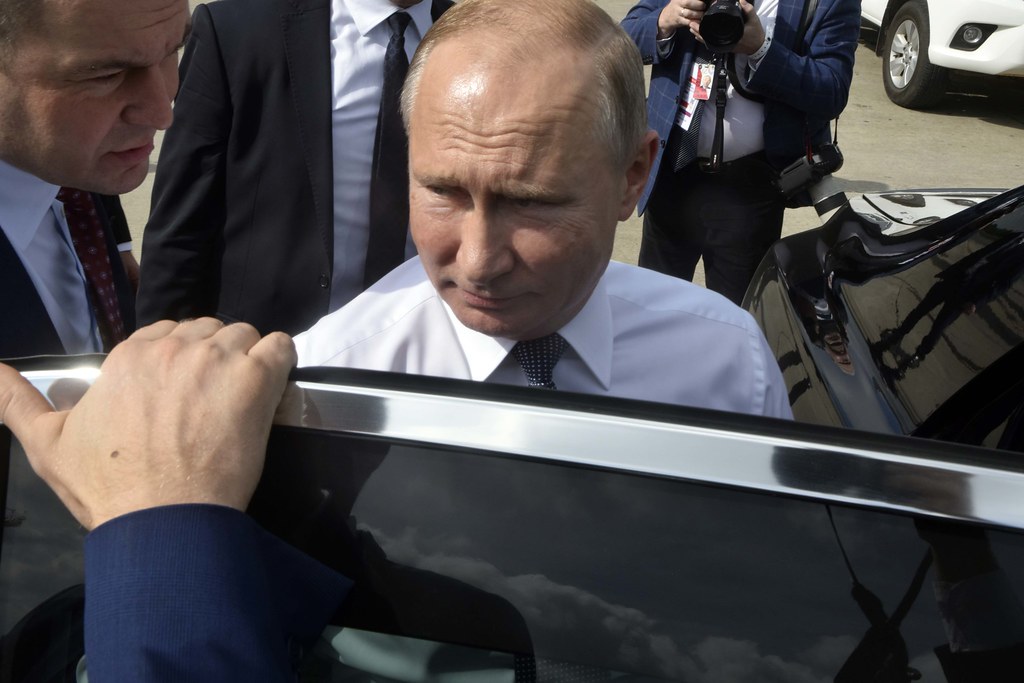
President Donald Trump has released a bold new plan to bring the years-long war in Ukraine to a quick conclusion. He’s optimistic a resolution could be reached within days or weeks. His stunning recent phone call to Russian President Vladimir Putin has raised serious doubts about the wisdom of his approach. At times, he’s ceded a great deal of authority to the Russian leader, worrying many with his affinity. Trump aims to dedicate his potential second term to peacemaking, but his statements have sparked concerns regarding Ukraine’s sovereignty and political system.
During an interview with Fox News, Trump emphasized the urgency of addressing the war, stating, “Because I think there’s a chance of getting something done, and if you do that, you could make it much worse.” He repeated with great conviction his stance that Ukraine should negotiate with Russia. Only they can negotiate a ceasefire and ultimately peace. Trump’s plan appears to involve imposing severe restrictions on Ukraine’s sovereignty, a stance that has drawn criticism from various quarters.
A Fragile Peace Process
Trump’s proposals for peace involve engaging in one-on-one negotiations with Russia at venues like The Vatican, Turkey, or Switzerland. Of course he was just as confident in his own ability to mediate the whole fistie-majig. He pointed to his record accomplishments, including cooling diplomatic tensions between India and Pakistan, as evidence. He stated, “My whole life is like deals – one big deal,” reflecting his self-image as a negotiator capable of resolving complex conflicts.
For all of Trump’s supposed pro-peace aims, journalistic and scholarly professionals have scolded critics by pointing out how lackluster the efforts have been. His administration had already been criticized for not putting enough pressure on Russia during its initial incursion into Ukraine. Given this history, it’s no wonder some analysts have raised doubts about the effectiveness of his proposed approach.
“It feels to me that the president maybe didn’t really try to pressure Putin at all. It’s good that they had a two-hour conversation but coming out of that what do we have?” – Beth Sanner
Additionally, Trump’s statements calling for Ukraine’s de-Nazification have deepened the anti-Trump firestorm over his proposals. Supporters respond that this type of rhetoric undercuts Ukraine’s sovereignty and plays into Russia’s narrative.
Reactions from Leaders
Ukrainian President Volodymyr Zelensky has made clear his displeasure with the United States’ contributions to the unfolding peace process. He emphasized the importance of U.S. involvement by stating, “It is crucial for all of us that the United States does not distance itself from the talks and the pursuit of peace, because the only one who benefits from that is Putin.” On the floor, Zelensky described the moment as a “defining moment.” He called on world leaders to demonstrate their commitment to more than just securing a ceasefire and working towards a permanent peace.
Trump’s renewed complaints about the costs associated with the war in Ukraine resonate with many Americans who are weary of prolonged military engagements. He has even called for increased sanctions against Russia if it maintains its violent aggression toward Ukrainian citizens. His position embodies the thinly veiled desire for accountability combined with an unclear commitment to direct U.S. involvement.
“This is a defining moment. The world can now see whether its leaders are truly capable of securing a ceasefire and achieving real, lasting peace,” – Zelensky
Navigating Complex Diplomacy
Trump is desperately trying to play the role as the peacemaker. Yet he has many layers of intricacy for managing diplomacy with Russia and Ukraine. He essentially proposed that the United States would withdraw from any active role. In the meantime, both countries should invest themselves in the art of diplomacy. This approach would be seen as an abdication of leadership and responsibility at a most critical time for the direction of international relations.
Trump’s assertion that “there could be a time where that’s going to happen” suggests he remains optimistic about reaching an agreement. Yet skepticism reigns as to whether his administration can actually help create the right environment for serious negotiations to take place.
“I believe Putin wants to do it … if I thought that President Putin did not want to get this over with, I wouldn’t even be talking about it,” – Trump
Yet amid the significant work remaining, Trump has sounded an optimistic note on the possibilities for advancement. He emphasized the importance of leaders talking to each other directly as a way to break down barriers.
“He’s got to get on the phone with President Putin, and that is going to clear up some of the logjam and get us to the place that we need to get to. And I think it’s going to be a very successful call.” – Steve Witkoff
Author’s Opinion
Trump’s peace plan for Ukraine raises fundamental questions about the balance between diplomacy and sovereignty. While his push for direct dialogue and swift resolution is optimistic, sidelining Ukraine’s agency and pushing Russia’s narrative risks undermining the legitimacy of any agreement. True peace requires not just negotiation but respect for the independence and dignity of all parties involved.
Featured image credit: G20 Argentina via Flickr
For more stories like it, click the +Follow button at the top of this page to follow us.
